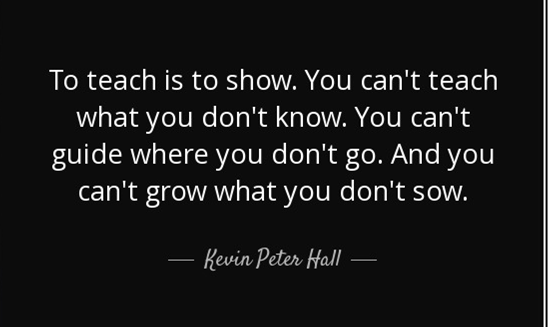Why You Should Avoid Learning From Those Who Have Never Achieved The Level Of Success You Seek and Whose Motivation is Recognition vs Knowing How to Help You
By Jennie Norris, President & CEO, Stagedhomes, Chairwoman, IAHSP®, CEO, Sensational Home Staging

Established in 1999, Stagedhomes – The World Leader in Home Staging Education and IAHSP® – The International Association of Home Staging Professionals® provide education and resources for long-term success in Home Staging, Real Estate and Design. The current leaders of these entities are active and successful now and teach what works for today and into the future. They are educators, content creators, visionaries, risk-takers, and pioneers who have carved paths of success and share their knowledge of what is proven to work. They are grooming future leaders who will continue to guide the industry into the future.
Unfortunately, there are people who seek to profit off those who want to learn what works to build a successful business today. Their EGO is what drives them – the craving for validation propels them to continue to try and be part of something even when they are no longer relevant to advise business owners about how to be successful. These people have not achieved the level of success desired by those who want to learn, and/or their knowledge is very outdated. You cannot teach what you do not know – unless you deliberately fake it which deceives the people trusting you to help them succeed. They may be great people, however that is not what you want when building a business. You want someone to show you HOW they did it – and what you need to do to be successful for TODAY.
Learning from an instructor who is NOT currently successful has clear drawbacks. Here are a few points to consider when looking at your education:
- Outdated Knowledge: Someone who has left or has been inactive in an industry is not aware of the latest trends, technologies, or developments. Reading or hearing about trends, tech and developments is not the same as actually using them actively. Industries evolve rapidly, and what was relevant a years ago when they were at the height of their success – might not be applicable today. Outdated knowledge can hinder your learning and success in the current landscape.
- Limited Network and Connections: Success in many industries is not just about knowledge but also about networking and connections. An instructor who left an industry has not maintained relevant contacts, and networking opportunities could be limited. Networking is often crucial for career advancement and being able to get connected to key influencers your instructor knows is a valuable aspect of learning.
- Lack of Practical Experience: Success in an industry often comes from practical experience and hands-on knowledge. When an instructor hasn’t been successful in the industry, they lack the practical insights and real-world experiences that is valuable for learners.
- Inability to Navigate Challenges: Successful individuals in an industry have likely faced and overcome challenges. An instructor who hasn’t been successful is not equipped to provide guidance on how to navigate obstacles, or provide advice on growth, limiting your ability to handle real-world situations with their inability to provide solutions to challenges you may encounter.
- Questionable Credibility: Learners often seek courses from instructors with a proven track record of success in the industry. If an instructor is not successful now, it may raise questions about their credibility and the effectiveness of their teachings as you have to ask, “What are they basing this education on if they have not even accomplished what I seek to learn?”
- Limited Mentoring Opportunities: Successful individuals in an industry often become mentors to others. When your instructor hasn’t been successful, you miss out on the mentorship opportunities that could significantly contribute to your personal and professional growth.
- Motivational Impact: Learning from someone who has succeeded in the industry can be motivating and inspiring. When an instructor hasn’t achieved success, it may be challenging to convey the passion and drive needed for success, potentially affecting the motivation of the learners. Those who pretend to have achieved success or use the success of others and claim it as their own lack credibility and should not be trusted.
Ego can play a significant role in a person’s need for relevance in an industry that has moved past them. Here are several ways in which ego may be involved:
- Ego driven people are Narcissists. These people tend to attract and use highly empathetic people. Empaths and narcissists are drawn to each other because empaths have a lot of compassion and understanding to give, while narcissists thrive on someone worshipping them. Ego driven people do things to increase their perceived sense of worth, and to receive accolades. Non-Ego Driven people are focused on the success of others, and do not envy or fear being surpassed.
- Fear of Irrelevance: Individuals with a strong ego may fear becoming irrelevant in their industry. This fear can drive them to seek ways to maintain or regain relevance, even when the industry has evolved beyond their expertise.
- Identity Attachment: Success in a particular industry can become a significant part of an individual’s identity. When their identity is closely tied to their professional success, they struggle with the idea of being perceived as irrelevant or outdated, and desperately try to remain relevant with shameless self-promotion instead of gracefully exiting out of the industry and allowing others to lead into the future.
- Competitive Nature: Ego can fuel a competitive nature, driving individuals to want to prove and promote themselves continuously. If they perceive the industry has moved on without them, the desire to re-establish themselves can be rooted in a need to prove their worth to themselves and others. This results in a desperate attempt to create relevance that will not benefit those they target for sales, and ultimately harms the overall industry that is trying to grow towards the future, not be tied to the past.
- Resistance to Change: Ego can contribute to a resistance to change. Individuals who have achieved success may be accustomed to being regarded as experts and admitting that they need to learn new skills or adapt to changes in the industry can be challenging for their ego.
- Desire for Recognition: Ego often involves a desire for recognition and validation. Individuals may seek to remain relevant in their industry to continue receiving accolades, admiration, and respect from their peers and the broader community. An individual with no identity outside of who they were in an industry, is unable to focus on more important things in life and becomes a sad character in an industry that has moved well beyond their knowledge and capabilities.
- Taking Credit for Other’s Success: Ego driven people often take credit for the success of those they have taught or mentored. “If it weren’t for me”… these people are unable to happily acknowledge the success of others, and instead have to tie themselves to the successful person, essentially dimming the success of the other person in order to shine a light back on themselves. A person without ego edifies, steps aside graciously, and feels joy at seeing others surpass their accomplishments. They know they played a part, but do not take credit for the work.
- Insecurity and Self-Worth: Ego can be closely tied to feelings of self-worth. If an individual’s self-worth is heavily dependent on external validation, they may feel the need to stay relevant in their industry to maintain a positive self-image. People who lacked validation as a child or younger adult, need constant stroking – which is tiresome to those who are tasked with the role of having to lead the fan club. At some point, the using of others is recognized and those able to extricate themselves and are freed to focus on themselves instead of the neediness of an ego-driven individual.
- Maintaining a Sense of Control: Ego can contribute to a desire for control. Individuals may want to maintain control over their narrative and reputation within the industry, even as it undergoes changes and advances past their personal contributions and achievements. If Henry Ford, who invented the original automobile, were alive today, he would admittedly not know more than Elon Musk. The automobile evolved far past any of Ford’s achievements. He is recognized as the founder yet is not looked at for progress and the future. The innovators of today, the successful business leaders, are the ones we look to for inspiration and knowledge.
- Inability to Edify Other Leaders and Step Aside: It’s important to note that when ego becomes the primary driving force, individuals may struggle to adapt, collaborate, or accept that their role in the industry has shifted and grown beyond anything they ever personally achieved. It does not mean their past contribution is not important or valued. It does mean they don’t have viable information or knowledge to contribute to those who truly want to learn what to do for TODAY. Instead of edifying current leaders and successful business owners who have real-life experience to share with those who want to learn, ego driven people refuse to step aside and allow others to shine. This is one of the most destructive aspects of living in ego.
In summary, it is important to learn from those who are currently successful in whatever endeavor you choose and question the motivation for whatever they are teaching. Is it truly to help YOU succeed and be an example and mentor you can follow, or is it to feed their ego and self-worth? The answer to that question will have huge implications on your ability to succeed and achieve your goals.
We are here to help you make the right decision and are available to answer any questions you may have about building a successful home staging, design or real estate business. We can plug you into success and provide the resources you need to accomplish your goals.

About the Author: Jennie Norris is a Master ASP® Stager, holds 12 other industry credentials, and was the first recipient and only 2-time winner of the Staging Award of Excellence. She is the President & CEO of Stagedhomes, Chairwoman of the IAHSP®, and is the CEO of Sensational Home Staging – We Stage Colorado, the most credentialed and awarded company in the state. Jennie is a content creator, course developer, mentor, educator, speaker, and earned a degree in Psychobiology from UCLA with a specialty in human behavior. She first volunteered to serve in leadership in 2003, and as the IAHSP® Chairwoman, she is focused on helping the future generation of home staging, real estate and design professionals flourish. After taking over the ownership Stagedhomes and IAHSP® in 2016, the entities thrived and more than doubled in size under her leadership. She brought high-quality educational events back to the industry, and was the first person to focus on collaboration as a success strategy, establishing the very first ever association member chapter in 2003. Her personal staging company has experienced excellent growth and revenue, setting records from volume and profitability – and she attributes this to her background in marketing that has served her well as she built her businesses. Jennie ensures the content provided to students and resources provided to members is relevant and future-focused, and collaborates with other successful colleagues to bring the best education and resources to those she serves.
